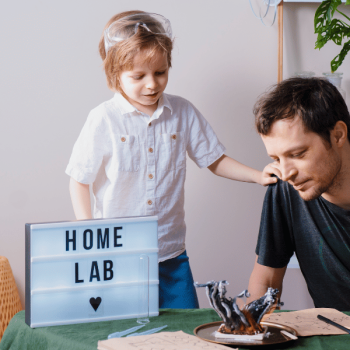
Factor #3: With more intentional effort, brain plasticity can be catalyzed at any age
What about for older dads, who are well past the newborn phase and perhaps are regretting that they didn’t (or couldn’t) have as much hands-on involvement in the early years? The ability for a brain to change is referred to as “plasticity” by scientists, and the U.S.-Spain study only looked at the brain plasticity of early-stage dads. But plenty of other research has demonstrated the brain’s overall plasticity for a lifetime. The key appears to be intentionality and effort if it is outside of a natural, biological “window.”
As just one illustration of this, research has found that the intentional learning that happens in psychotherapy often creates major physical changes in the brain, allowing the participant to do better at what is needed in psychotherapy: regulate emotion, thinking, and memory. Having seen many of these examples, scientists theorize that any intentional effort will create neural pathways and increase skill at the matter at hand – it’s just that person may have to put more effort into the process if it isn’t a period of optimal plasticity.
So the overall implication is clear for all the fathers out there: the more you are intentionally involved with your child, regardless of your parenting stage, the more you will be deepening those neural pathways, increasing your competence, and enjoying the confidence that comes with it!
We will unpack the practical actions that will most help you (and the woman in your life) do that, in Part 2.

Improve your relationships with simple, actionable steps backed by proven research! Visit
SurprisingHope.com to learn about our courses.
Do you want Shaunti to share these life-changing truths at your church or event? Send
us a speaking inquiry request today!
Please note: This post contains affiliate links. As an Amazon Associate we earn a small
amount from qualifying purchases through these affiliate links. This doesn’t cost you
anything.













